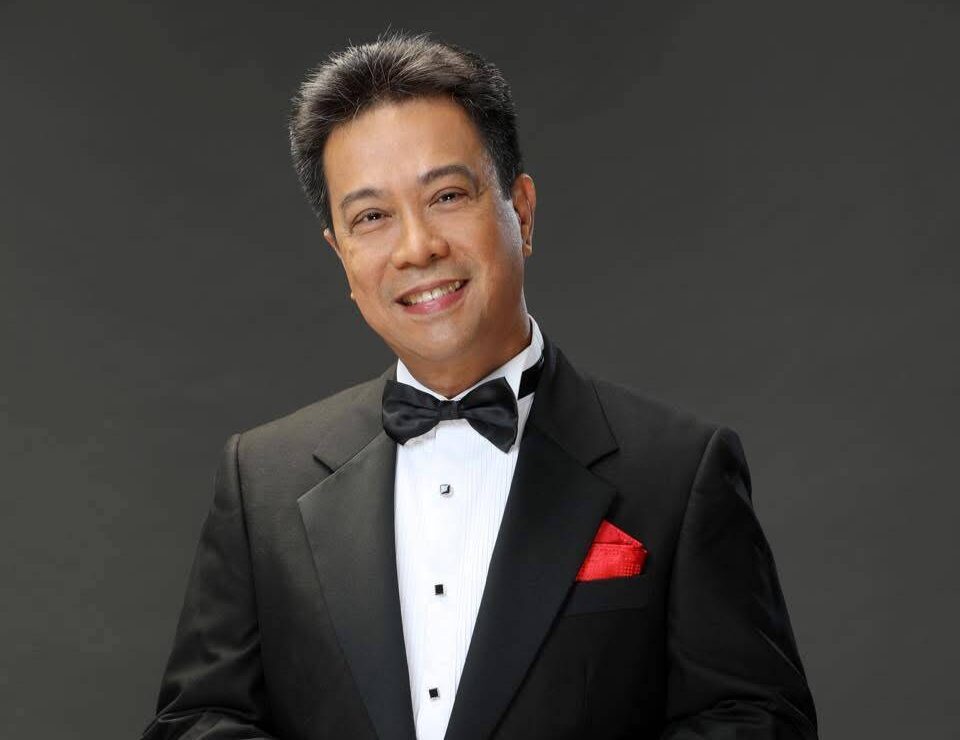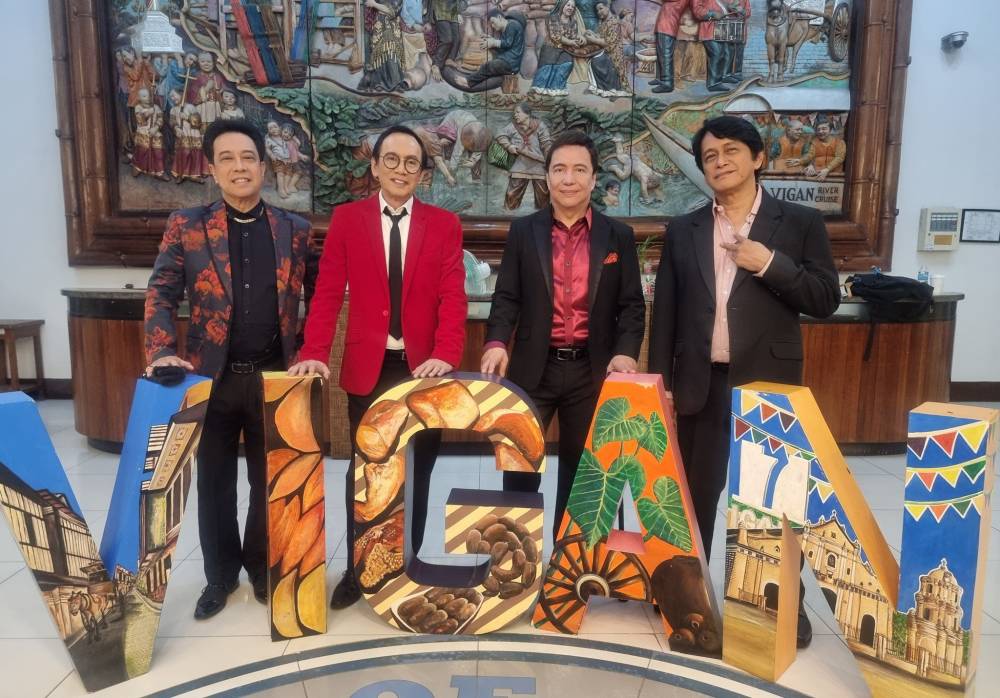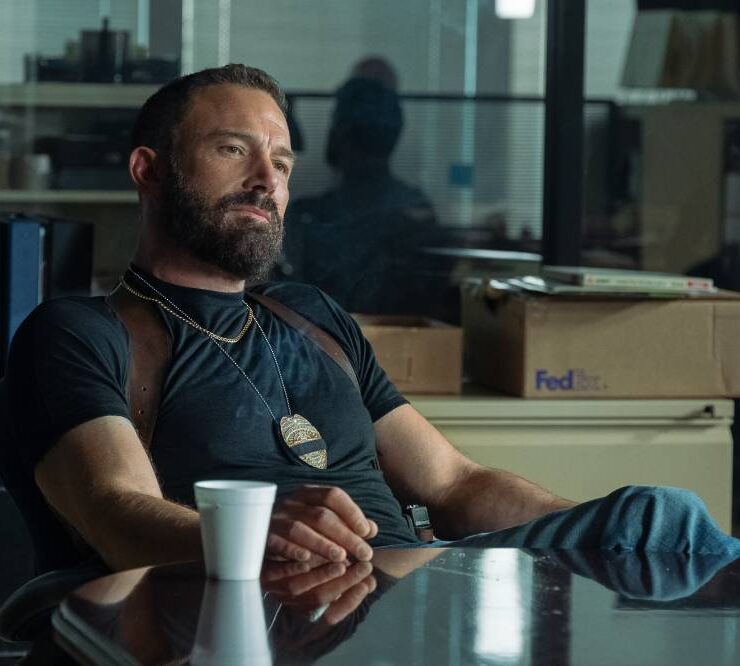Hajji Alejandro, unlikely funnyman

At first glance, Hajji Alejandro could appear aloof, a bit intimidating even—the kind of presence that makes one think twice about approaching him. “May tingin sa kanya na suplado,” his good friend and singer Marco Sison said.
But to those who had the fortune of knowing him and working with him before his recent passing, Alejandro—iconic balladeer and “Kilabot ng mga kolehiyala”—was also the funniest. Spend enough time with him, and his strictly business countenance would slowly fade away.
Playful
“A lot of people don’t know this, but Hajji had a big sense of humor. There were no dull moments with him. The jokes came nonstop. Masarap siyang maging kaibigan,” Sison told the Inquirer.
Those riotous and oftentimes naughty jokes the late Rico J. Puno used to make in their concerts together? Many of those, believe it or not, were products of Alejandro’s deceptively playful mind, incorporated into the loose scripts he used to come up with for between-song banter. He just didn’t have the nerve to crack them himself, so Puno—if there was anyone who could get away with anything saucy, it was him—always took one for the team.
“He was one of the biggest reasons we had so much fun onstage,” Sison said of his shows with the OPM Hitmakers—a two-decade-old legacy act also composed of fellow music icons Nonoy Zuñiga and Rey Valera.
But Alejandro’s comedic flair wasn’t limited only to cheeky punchlines or biting ripostes. He was just as slick in finding humor in current events and even everyday drudgery. “He could make a joke out of different situations. He was so witty, his mind was so quick!” Zuñiga told the Inquirer.
“He was a joke generator. That’s one of the things I will never forget about him. Grabe ang tao na ‘yan, hindi talaga siya nauubusan ng baon. Kaya never kaming natahimik,” he added.

Last Feb. 13, the Hitmakers played a pre-Valentine’s Day concert in Vigan. The next thing they knew, Alejandro was in the hospital, diagnosed with Stage 4 metastatic colon cancer. That was the last time they saw him in person.
Still, Valera, Zuñiga, and Sison soldiered on, doing shows here and abroad that Alejandro should have been part of.
Now, the quiet will take some getting used to. “Ramdam na ramdam namin kapag wala siya,” Zuñiga said.
Perfectionist
And it wasn’t just the laughter they were missing. Alejandro—ever the perfectionist and stickler for the smallest of details—provided structure and stability within the group. He made sure everyone was on time. He worried, and overly so, when the sound system wasn’t at par. Not surprising for someone who used to neatly lay out and group his clothes for each day he went on tour.
“Siya ang punong-abala,” Zuñiga said. “He was like our director,” Sison added.
Alejandro died at the age of 70 last April 21, just two months after he found out he was critically ill. And the jarring swiftness with which events spiraled sent his friends reeling. Sison was in denial, Zuñiga in shock. “We had become good friends and grown really close offstage. And it pains me that it all had to end so abruptly,” Zuñiga said.
At the peak of his popularity in the late 1970s, Alejandro earned the nickname “Kilabot ng mga kolehiyala”—the college girls’ dreamboat—thanks to his boyish charm and soulful serenades that had young women falling head over heels. It also didn’t hurt that he had a handful of hits at his disposal—“Nakapagtataka,” “May Minamahal,” “Kay Ganda ng Ating Musika”—all of which helped enrich the first golden age of the Original Pilipino Music or OPM movement during that decade.
And as tremendous as his loss is to the local music industry, there are shreds of solace to be had from the legacy he left behind.
“The fandom he had during his time was phenomenal. There was no one quite like him. The girls shrieked, they went crazy over him. His youth, looks, and talent made a perfect combination. His music, the trends he started, the phenomenon… those are just some of his contributions to OPM,” Zuñiga said.
Sison, meanwhile, couldn’t be more grateful that much of Alejandro’s career later in life was spent with the rest of the Hitmakers, allowing him to witness firsthand the profound love and dedication his dear friend poured into his craft.
“In this industry, only sickness or death can force us to retire. As long as there are people listening and as long as people find joy in what we do, we will continue to perform. It’s something you can’t just forget or give up. And that was what Hajji did until the very end,” Sison said.





















